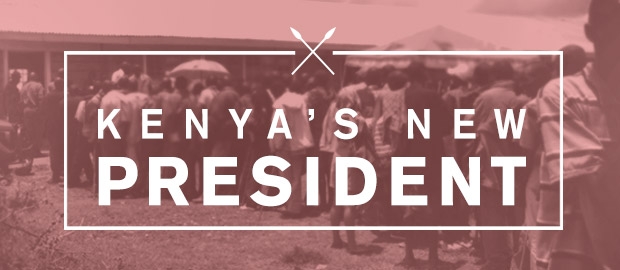
Kenya’s new president has been announced; however this final result contains many surprises and contradictions. The man who has been appointed as president is Uhuru Kenyatta – the same man who been charged by the International Criminal Court (ICC) for crimes against humanity. The new president of Kenya has been accused of being involved in the violence that took place after the 2007 elections.
There are questions to ask in the playing out of events here. Despite the fact that Kenyatta hasn’t been found guilty for the ICC case, how does the population of Kenya trust a man who is accused of such an immense crime?There is more to this story though: a recent headline states that the charges on Kenyatta’s co-accused have been dropped and this outcome could impact the outcome of Kenyatta’s case. The plot thickens with the outgoing president Raila Odinga questioning the outcome of the results, claiming fraud. This drama is also layered with claims of attacks in parts of Kenya during the elections, some which led to the death of citizens. There are those who question the integrity of Kenyatta’s wealth inherited through his father, who was the country’s first president. This inheritance makes the current president the richest man in the country.
The idea that the people of Kenya would trust a man who is still under investigation puzzles me. Surely as citizens we want a leader that we can put our confidence in?
Or is it the power that a leader may have that draws us as Africans to believe they can make our lives better? I can understand why the charisma of a rich man can be appealing to Africans; some may think that if he has made a success of himself he may be able to do the same for the rest of country.

Others may argue that the election of Kenyatta is a “positive” on the subject of the independence of Africa. There are those who have criticized the ICC for solely charging African leaders while there are leaders in other continents that have a bad track record regarding atrocities. Some will argue it is good that the population of Kenya was not influenced by a court that has been viewed by some as an institution that is aligned with “western interests”. In fact, some analysts have claimed that the charges were the very thing that assisted Kenyatta and his election campaign to strengthen his strategy and kept him in the news – the showcasing of a man who needed to make a point of victory overWestern powers.
Aslong as Kenyatta’s case is pendingthe country willbe in a dilemma, as its future is dependent on the outcomes of the ICC case. What happens if the current president is found guilty? Will they hold another election or does Raila Odinga automatically reign as the runner up in elections? Such issues are contentious and this could be fertile ground for an uprising or a civil war. Even a positive outcome still raises questions. Willa man who isknown for plundering the wealth of his country have the capacity to build the lives of ordinary citizens?
I guess only time will tell.

